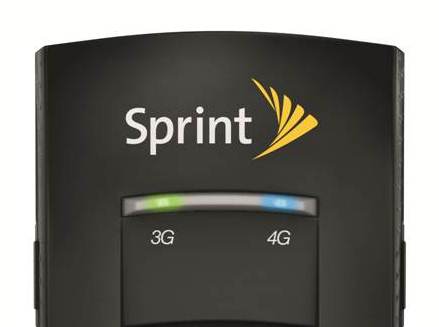Technology
As Sprint Announces Earnings, Does Softbank Have Regrets?
Published:
Last Updated:
Sprint Corp. (NYSE: S) released earnings that were not only poor, but show that, despite some progress with subscriber additions, it is still bleeding on the bottom line. Softbank already may regret its decision to buy 78% of Sprint for $21.8 billion. Even with a huge investment from Softbank, Sprint’s earnings show how far it has to go to become a true competitor in the U.S. wireless market in which the number of subscribers is nearly as large as the total population.
The number three wireless company announced:
[S]econd quarter 2013 results including record quarterly Sprint platform wireless service revenue of $7.2 billion and continued growth in Sprint platform postpaid subscribers. For the quarter, operating loss was $874 million and Adjusted OIBDA was $1.4 billion as Sprint continued to make significant investments in the business.
“This is a historic time for Sprint. We recently shut down the Nextel platform and completed the Clearwire, SoftBank and U.S. Cellular transactions. In the second quarter, we achieved record levels in Sprint platform postpaid subscribers, service revenue and postpaid ARPU, and increased our 4G LTE footprint,” said Dan Hesse, Sprint CEO. “Sprint pioneered unlimited voice, text and data in 2008, and we recently introduced the first lifetime guarantee, solidifying our commitment to the simplicity and peace of mind that unlimited brings.”
Sprint Platform Again Achieves Record Revenue, ARPU and Subscribers
Sprint platform service revenue, postpaid ARPU and postpaid subscribers all reached best-ever levels in the second quarter. The Sprint platform had postpaid net additions for the 13th consecutive quarter and a postpaid Nextel recapture rate of 34 percent. Sprint platform postpaid ARPU grew year-over-year for the 11th consecutive quarter.
As expected, the Sprint platform lost prepaid customers as a result of planned deactivations related to regulatory changes impacting the lower-ARPU Assurance brand. This was partially offset by strong Assurance gross additions and continued growth in both Virgin Mobile and Boost Mobile subscribers. Virgin Mobile gross additions improved 70 percent year-over-year.
On the bottom line, Sprint lost $1.5 billion, compared to $1.4 billion last year, although that part of the financial data was buried deep within the announcement. Management seems to believe that progress in subscriber numbers will offset the clear deterioration of its earnings.
Sprint continues to be a long way from proving it can compete with AT&T Inc. (NYSE: T) and Verizon Communications Inc. (NYSE: VZ). AT&T has more than 107 million wireless subscribers to Verizon’s 78 million, and Sprint’s number is just over 51 million. AT&T and Verizon have been able to take advantage of their huge number of landline customers as a means to market wireless products.
Softbank management has stated often that it can turn Sprint’s results positive. However, there is fair reason for skepticism. Even if the Japanese company pours billions of dollars into Sprint, the third-place carrier has a string of several years of results that show it cannot make progress against the other two carriers. Sprint believes that if it can give away features that AT&T and Verizon charge for, that those customers will switch. So far, there is no evidence of that. One reason is that most AT&T and Verizon customers have two-year contracts, which carry large penalties if they are broken. And the quality and size of the 4G networks of Verizon and AT&T are good enough to have prevented any large-scale complaints from their customer bases.
If Sprint’s results continue to be poor between now and year-end, Softbank will have made a bad deal.
Thank you for reading! Have some feedback for us?
Contact the 24/7 Wall St. editorial team.